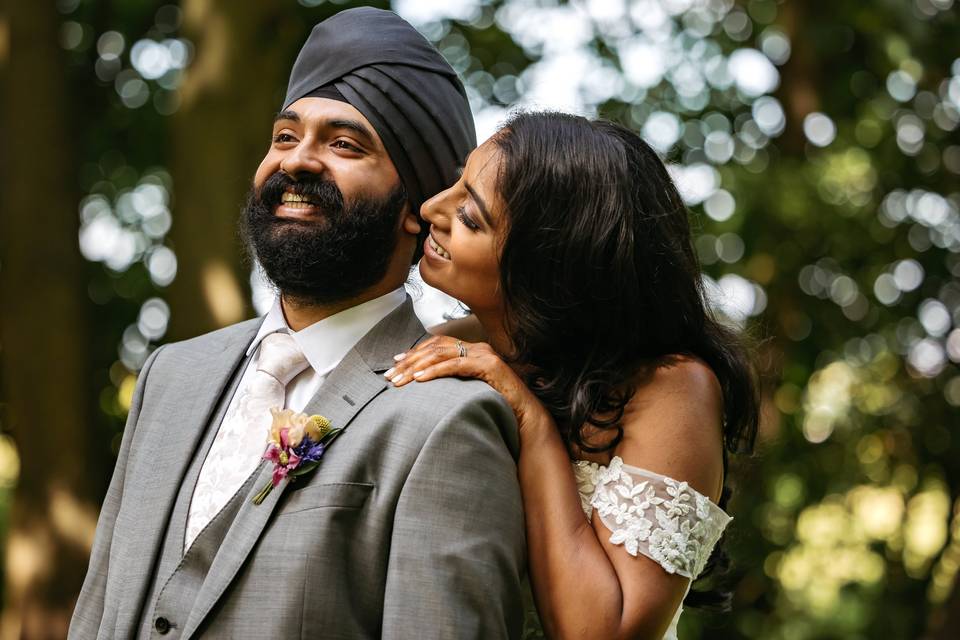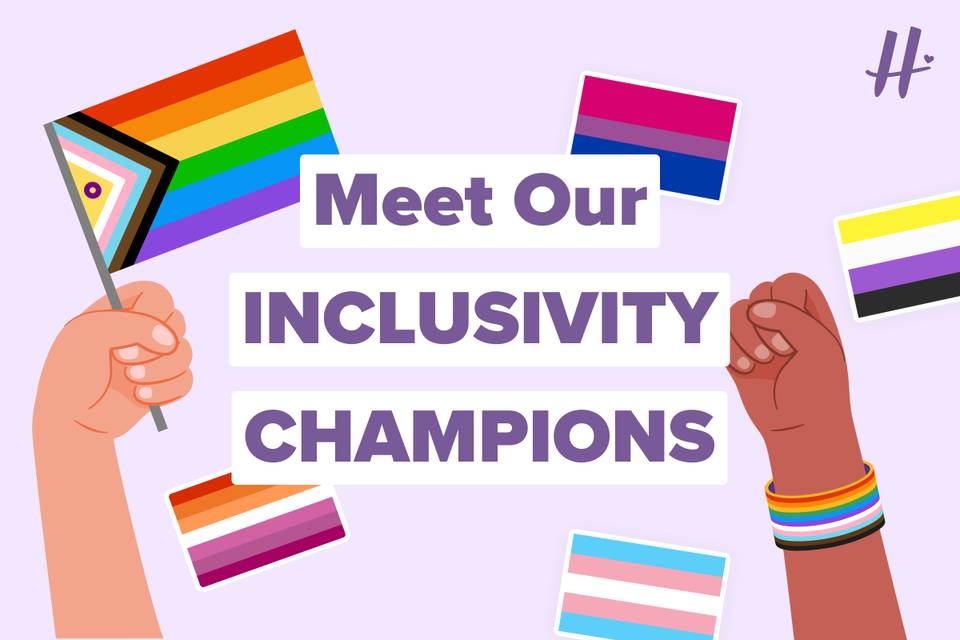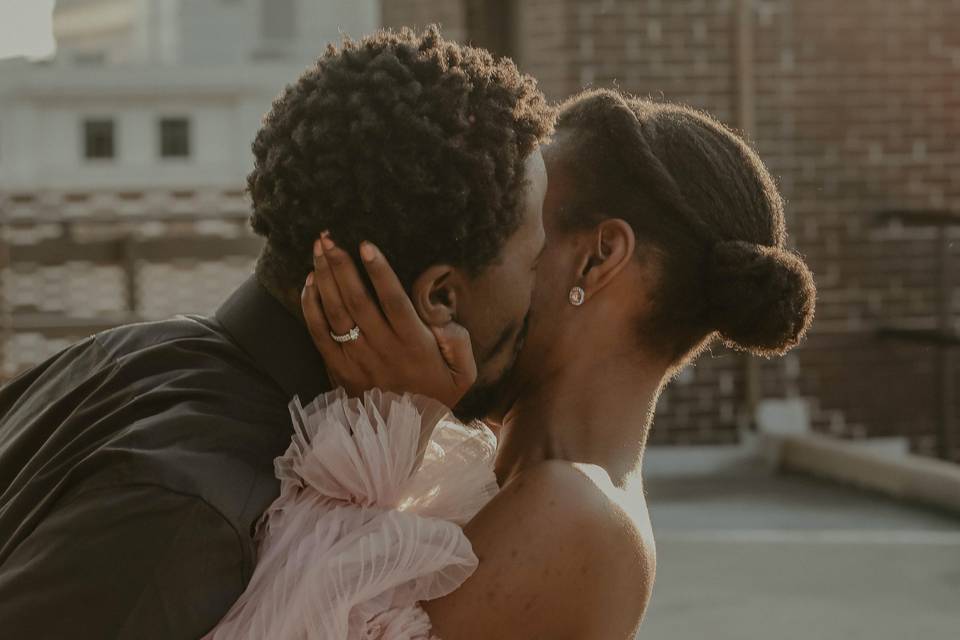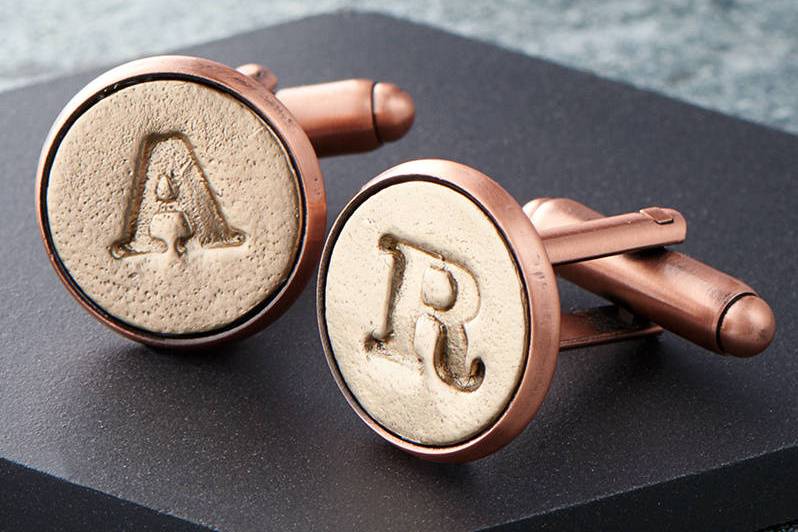How to Get Married in the UK: Everything You Need to Know
Planning on saying "I do" in the UK? We've covered everything you'll need to know about how to get married in our ultimate guide
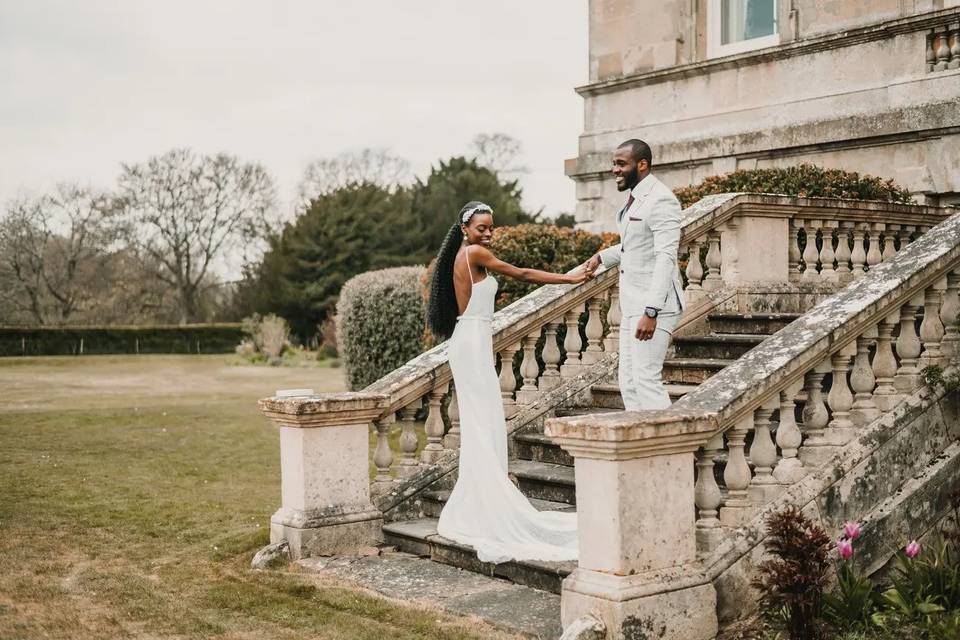

So you’ve just got engaged and now you’re wondering how to get married. This is such an exciting time in your life, but before you get swept away in the romance of it all, there are some important steps to ensure your nuptials are both legal and stress-free.
How to Get Married in the UK: Your Step-by-Step Guide
Steeped in history, the UK offers a fairy-tale setting for all kinds of weddings. Breath-taking landscapes, from castles to coastlines, create a romantic backdrop for hundreds of thousands to say "I do" each year.
How to get married in the UK in a civil wedding is the same for all couples, regardless of sexual orientation or marital history. However, it's important to note that same-sex couples cannot currently get married in the Church of England or the Church of Wales.
So, read on to discover everything you need to know about how to get married. From marriage registration in the UK to giving notice, our guide will ensure a smooth and joyful journey to your wedding day.
What Type of Weddings Are Possible in the UK?

When it comes to getting married in the UK, there are a bunch of different wedding ceremony options to choose from including civil weddings, religious weddings (such as Anglican, Roman Catholic, Jewish, or Quaker ceremonies), same-sex weddings, civil partnerships, humanist weddings and multi-faith weddings.
Civil Ceremonies
Civil wedding ceremonies are non-religious ceremonies conducted by a registrar at a register office or approved venue. If you are looking for a wedding ceremony that offers plenty of flexibility around venue choice and ceremony content, then this could be a great option for you.
To ensure your civil wedding ceremony is legally binding in the UK, you and your partner must exchange vows that include specific legal wording. These are known as 'declaratory' and 'contracting' words. The 'declaratory' part involves each partner stating they have no legal reason to not be married. The 'contracting' part involves each partner officially accepting the other as their spouse.
While you can choose your own readings and songs to personalise the ceremony, religious content is not permitted. A registrar, who either conducts the ceremony or is present throughout, will make sure everything is official, however you still need two witnesses to sign the marriage register alongside you and your partner.
Religious Ceremonies
How to get married by a religious ceremony is slightly different. Religious weddings, like Anglican, Roman Catholic, Jewish, or Quaker ceremonies, occur in places of worship (although Jewish weddings can take place anywhere as long as they are under a Chuppah) and are officiated by religious officiants according to the customs and traditions of each faith community.
Similar to what happens during a civil ceremony, you and your partner will need to solemnise your marriage by saying a prescribed form of words. This exchanging of words may also include declarations and rites specific to your religion.
After your religious ceremony, your marriage must be registered immediately by the officiant signing a marriage licence. If the religious leader is not authorised to register marriages, a civil registrar must also be present to legalise it.
Humanist or Celebrant-Led Ceremonies
Humanist weddings are non-religious ceremonies that focus on celebrating love and commitment without reference to a higher power or deity. They are conducted by Humanist celebrants and are a wonderful alternative if you do not wish to have a conventional ceremony.
Humanist ceremonies are legal in Scotland and Northern Ireland, however, they are not currently legal in England or Wales. Independent celebrants cannot perform legal marriages in the UK at the moment, so you will need to marry at a registry office prior to your celebrant-led ceremony or your humanist ceremony if in England or Wales.
Civil Partnership
In the UK you also have the option for a civil partnership. This type of ceremony offers a legal alternative to marriage, providing most of the same rights and benefits but with a non-religious approach. If you choose to have this type of ceremony, you will register to marry by signing a document with witnesses and a registrar and no vows are required.
Civil partnerships in the UK have been open to both same-sex and opposite-sex couples since 2013. While less common since same-sex marriage became legal, they remain a flexible option for couples seeking a formal union outside the traditional marriage framework, with the option to add a separate ceremony or religious blessing if desired.
Same Sex Ceremonies
Same-sex couples in the UK have the option to have civil wedding ceremonies, religious wedding ceremonies in certain faiths where permitted, or civil partnerships, which offer legal recognition regardless of gender. It's important to note that same-sex couples cannot currently get married in the Church of England or the Church of Wales.
It’s worth noting that the process for marriage registration in the UK can vary slightly depending on your chosen ceremony type, so be sure to check with your local register office for specific details.
What Are the Legal Requirements to Get Married in the UK?
There are legal rules around who can actually marry in the UK, so make sure you adhere to all these first. In the England and Wales, you can get married or form a civil partnership if the following are accurate:
- Age: You must be 18 or over to get married in England and Wales. In Scotland, parental consent is required for marriage under 18, making the effective marrying age 18 without consent.
- Relationship Status: You cannot be already married or in a civil partnership.
- Relationship Type: Same-sex and opposite-sex relationships are both recognised for marriage.
- Relatives: Close blood relatives are prohibited from marrying.
- Immigration Status: UK citizens, those with indefinite leave to remain, or citizens of the EU, EEA, or Switzerland are eligible.
- Mental Capacity: You must be mentally capable of understanding and consenting to marriage.
What Paperwork and Documentation Do You Need to Get Married in the UK?

To get married in the UK you will need a number of different documents. The process begins with giving notice. This is a legal requirement that informs the authorities of your intention to marry.
You and your partner must visit your local registry office at least 29 days before the ceremony to complete this step and you must marry within a year once notice has been given. You can only give notice at a registered office if you have lived in the registration district for at least seven days.
You’ll need to bring the following documents with you:
- Proof of Name: This could be a valid passport or another document with your legal name.
- Proof of Age: A birth certificate is typically used here.
- Proof of Any Name Changes: If you've changed your name through deed poll or similar, provide documentation.
- Proof of Nationality: A valid passport or national identity card can be used.
- Proof of Address: Driving licence, recent utility bill, bank statement, or council tax bill are all acceptable options.
- Previous Marriage Status Documentation (if applicable):
- Decree absolute or final order (in case of a previous divorce).
- Death certificate of your former partner (if applicable). - Entry Visa (if applicable): For non-residents, proof of legal entitlement to be in the UK may be required.
- Marriage Details: Provide details of where and when you intend to get married.
It’s worth nothing that specific requirements might vary slightly depending on your location, so it's always a good idea to double-check with your local register office for the most up-to-date information.
In the Churches of England and Wales, the marriage can be registered at the same time as the ceremony so you don’t need to “give notice” of the marriage. However, many churches still read “banns” in the parish where each of the partners lives and in the church they intend to marry in. Banns are a notice of the proposed marriage which are read for three Sundays before the ceremony.
Do You Need a Birth Certificate to Get Married in the UK?
Yes, you do need a birth certificate to get married in the UK. Proving your age is a key part of marriage registration in the UK and that’s why you’ll typically be required to show proof of it.
However, if you or your partner were born in the UK before 1983, a valid passport can act as proof of both your name and age, and you may not need to show proof of your birth certificate. In some very rare cases, other age-verifying documents might be considered by your local register office, but we strongly recommend getting in touch with them well in advance to discuss other options.
How Much is it to Get Married in a Registry Office?

Once you are ready to give notice and have all your documentation on hand, you'll make an appointment at your local register office, where both you and your partner will pay a £35 fee each. If either you or your partner are from outside the EU, European Economic Area (EEA), or Switzerland, the fee is £47. Your marriage certificate will cost you another £11 and this is sent out four days after you apply for one.
How Do I Book My Wedding Venue & Registrar?
If you’re having a civil ceremony, you will need to make sure both the venue and registrar are available on the same day. We would recommend finding your venue and reserving your wedding date (don’t hand over any money or sign anything at this point), then call your register office to book the registrar for that day. You can’t book the registrar without the date or venue name so it’s essential to have both of these ready.
Once the registrar is confirmed, you can confirm the venue. Some venues will even book the registrar for you, which saves you a job! Be aware that some registrars won’t take bookings until a year before at the earliest. If your venue is popular, book it, and make a note to call the register office exactly a year to the day before you’re marrying to avoid disappointment.
What Kind of Vows, Readings & Music Can I Have at My Wedding?
Like we mentioned before, for a marriage to be legal, you must exchange set vows - this is not required at a civil partnership. These vows are typically found in the wedding pack given to you at the register office or prior to your religious ceremony, so you’ll have plenty of time to practise!
Alongside the vows you are required to say, you may wish to add some of your own, more personal vows. Just make sure to run them by the person conducting your wedding beforehand. It’s also a good idea to get approval on other aspects of your ceremony like music choices and readings.
If you are planning on having a civil ceremony, remember you are not allowed to include any religious content, such as readings, hymns or prayers that mention God. You’ll also need to send through your planned music and readings, plus ceremony wording choices, before the day for the register office to check. For a religious wedding, you’ll usually have a meeting with the person leading the ceremony a few weeks before the day and decide with them then if you’d like hymns/songs and what you’ll walk down the aisle to.
What Will Happen During My Wedding Ceremony?

Now for the fun part! Your registrar, celebrant or officiant will talk you through the exact process but most ceremonies follow a basic outline.
On the day, you will likely both meet with the person marrying you – either together or separately – to double check your identities and the names and details that will be on the marriage register and certificate. This will be short, only 15 minutes or so.
A registry office ceremony will only take around 15-20 minutes, but a religious ceremony can take much longer depending on how many songs and readings you choose. A civil partnership ceremony can take as little as two minutes if all you want to do is sign the certificate, but it can take up to 20 if you'd like to include personalised vows and music.
Here’s what to expect:
- Walk down the aisle (if you want)
- Welcome and introduction from officiant
- Reading (if chosen)
- Declaratory words ("any lawful impediment…")
- Exchange of vows and personal promises
- Exchange of rings
- Pronouncement of marriage
- Kiss
- Signing of register
- Presentation of the marriage/civil partnership certificate
- Closing remarks
- Couple’s exit
Then you’re free to take your photos and celebrate your reception with your friends and family – it’s time to party!
The final step in your wedding journey is to change your name. Here’s a guide to your options and a step-by-step list of everyone you need to inform.


